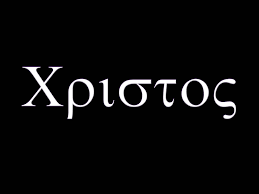By Ruby Setara
As the year winds down to a close, and many of our favorite holidays loom near, we begin to see sales, decorations, and items with sayings like “Merry Xmas!” The phrase itself, although seemingly benign, has wrapped itself up in controversy every holiday season. Does saying “Merry Xmas” take out the Christian aspect of Christmas? Why not say “Merry Christmas” regardless of how you answered the first question? Does it even matter?
The term has been in use since 1021, and continues to be used, even now, thousands of years later in Christmas cards, commercials, and holiday decor. Though a subtle change in denotion doesn’t seem like a big deal, it seems to disturb many conservative and liberal Americans every holiday season.
Meldrim Thomson, the Republican governor to New Hampshire in 1977, once released a press release condemning writing “Xmas” in journalistic reports. He believed “Xmas” was a pagan way of representing the holiday. Despite the fact that Thomson was misinformed, we can also note a key conservative value: maintaining traditional values in the new millenia. Although not all conservatives maintain this way of thinking, those who do often represent an American majority who clash with left-wing liberals.
 “Christmas” vs “Xmas” can be translated into “Democrat” vs “Republican”-esque debate of whether we should embrace new social changes or maintain tradition. Both platforms present valid reasoning—yet they miss the main point of disagreement: which is to learn. Debates aren’t meant to be ways of separating people, but a way to reconcile our differences and learn from one another. The stability of America’s political climate crucially depends on whether both sides are willing to power through differences and reach a resolution.
“Christmas” vs “Xmas” can be translated into “Democrat” vs “Republican”-esque debate of whether we should embrace new social changes or maintain tradition. Both platforms present valid reasoning—yet they miss the main point of disagreement: which is to learn. Debates aren’t meant to be ways of separating people, but a way to reconcile our differences and learn from one another. The stability of America’s political climate crucially depends on whether both sides are willing to power through differences and reach a resolution.
